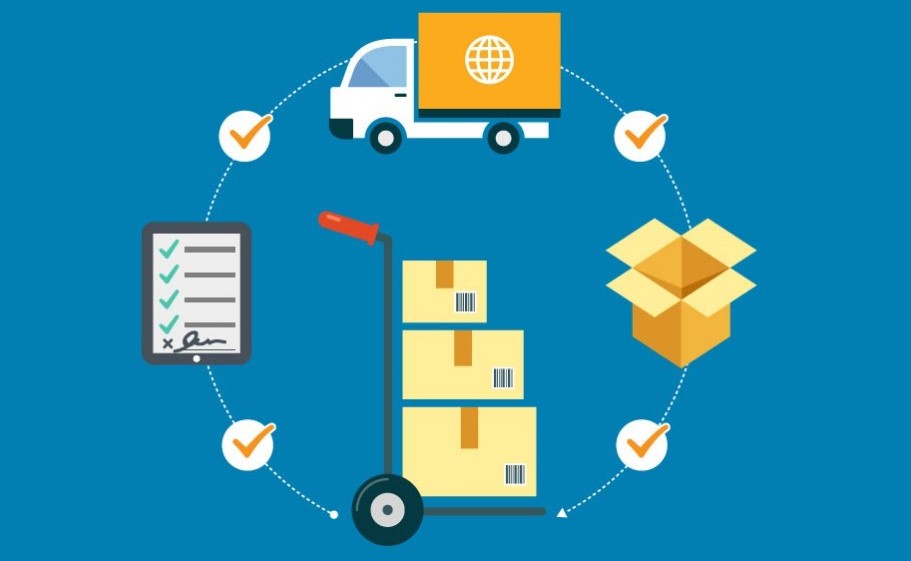Supply Chain Optimization: Shaping the Future with Cloud Solutions
The supply chain is one of the most critical elements of the modern business world. Globalization, increasing customer expectations and rapidly changing market conditions require businesses to make their supply chain processes more efficient, transparent and agile. However, traditional methods may be insufficient to respond to these dynamic needs. This is where cloud solutions come into play! Cloud technologies offer businesses unique opportunities such as cost advantages, real-time data access and process optimization.

What is Supply Chain and Why is it Important?
The supply chain covers all the processes a product goes through from raw materials to the end consumer. This process includes production, logistics, storage, distribution and customer service. But each of these processes can be a huge burden for businesses in terms of complexity and cost. Today, businesses are focusing on optimizing their supply chains to increase customer satisfaction, lower costs and reduce environmental impact.
So why is it so important? Because
Customer Satisfaction: Fast delivery and the right product increase customer loyalty.
Cost Control: An efficient supply chain reduces unnecessary spending.
Competitive Advantage: A fast and flexible supply chain makes it possible to stand out among competitors.
Sustainability: Less waste and energy consumption supports an environmentally friendly approach.
How Cloud Solutions Transform the Supply Chain
Cloud technologies digitize supply chain processes, enabling businesses to make faster, transparent and data-driven decisions. In traditional systems, data sharing is often slow, expensive and error-prone. Cloud-based solutions eliminate these problems. Here are the contributions of cloud technologies to the supply chain:
1. Real-time Data and Transparency
Cloud-based systems enable all stakeholders (suppliers, manufacturers, logistics companies) to share real-time data on the same platform. For example, a product’s stock status, shipment process or production progress can be tracked instantly. This transparency enables businesses to make quick decisions and respond immediately to potential disruptions.
2. Flexibility and Scalability
Cloud solutions can scale according to the needs of businesses. With seasonal spikes in demand or entry into new markets, cloud-based systems can be easily adapted. This allows businesses to grow without making expensive infrastructure investments.
3. Cost Savings
Traditional ERP systems are costly to build and maintain. Cloud-based solutions work on a subscription model and significantly reduce start-up costs. In addition, the operational burden of businesses is reduced as processes such as maintenance and updates are managed by the cloud provider.
4. Automation and Artificial Intelligence Integration
Cloud platforms can be integrated with technologies such as artificial intelligence (AI) and machine learning (ML). This enables automation in processes such as demand forecasting, inventory management and logistics optimization. For example, an AI-based system can predict future demand based on historical data and optimize stock levels accordingly.
Application of Cloud Solutions in Supply Chain Optimization
Integrating cloud solutions into the supply chain requires a strategic approach. Here are the steps that can be followed in this process:
1. Needs Analysis
The first step is to analyze your business’ current supply chain processes. In which areas are there inefficiencies? Which processes require more transparency? The answers to these questions will help you choose the right cloud solution.
2. Choosing the Right Cloud Platform
There are many cloud platforms on the market for different needs. For example
SAP S/4HANA Cloud: Provides comprehensive ERP solutions for large enterprises.
Oracle SCM Cloud: Provides powerful tools for supply chain planning and logistics.
Microsoft Dynamics 365: A flexible and user-friendly option for midsize businesses.
When choosing, consider the compatibility and scalability of the platform with your existing systems.
3. Data Security and Compliance
Supply chain processes involve sensitive data (customer information, financial data). Therefore, make sure that the cloud solution you choose complies with data security standards (e.g. GDPR, ISO 27001).
4. Training and Integration
Training is essential for your employees to use cloud-based systems effectively. In addition, receiving technical support during the integration process with existing systems makes the transition easier.
Competitive Advantages of Cloud Solutions for Supply Chain
Cloud-based supply chain solutions offer the following advantages to businesses:
Fast Decision Making: With real-time data, businesses can take instant action.
Global Access: Cloud systems facilitate global operations by eliminating geographical boundaries.
Sustainability: Less paper and optimized logistics reduce environmental impact.
Successful Examples: Cloud-Based Supply Chain Applications
Many global brands have transformed their supply chains with cloud solutions:
Unilever: Reduced delivery times by 20% with cloud-based logistics management.
Amazon: Achieved 99% accuracy in inventory management using AWS infrastructure.
Nestlé Reduced waste by 15% with cloud-based demand forecasting.
In conclusion, optimizing supply chain processes is not an option in today’s competitive world, it is a necessity. Cloud solutions are redefining these processes, offering businesses speed, flexibility and cost advantages. With the right strategy and platform choice, your supply chain can become not only more efficient, but also future-proof. Now is the time to act: Unlock the potential of your supply chain by embracing cloud technologies!


